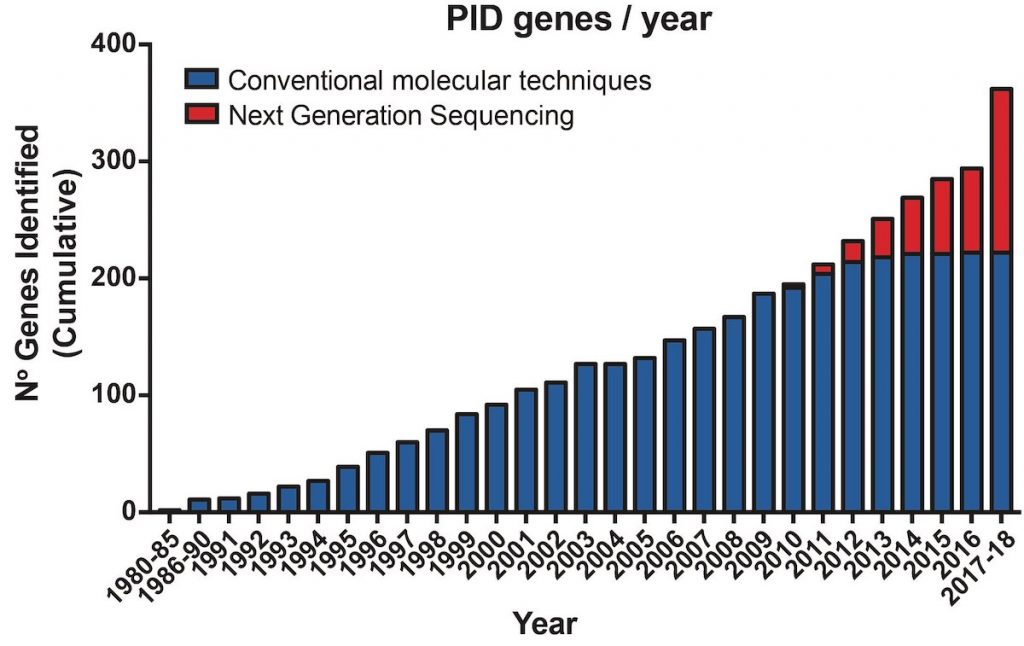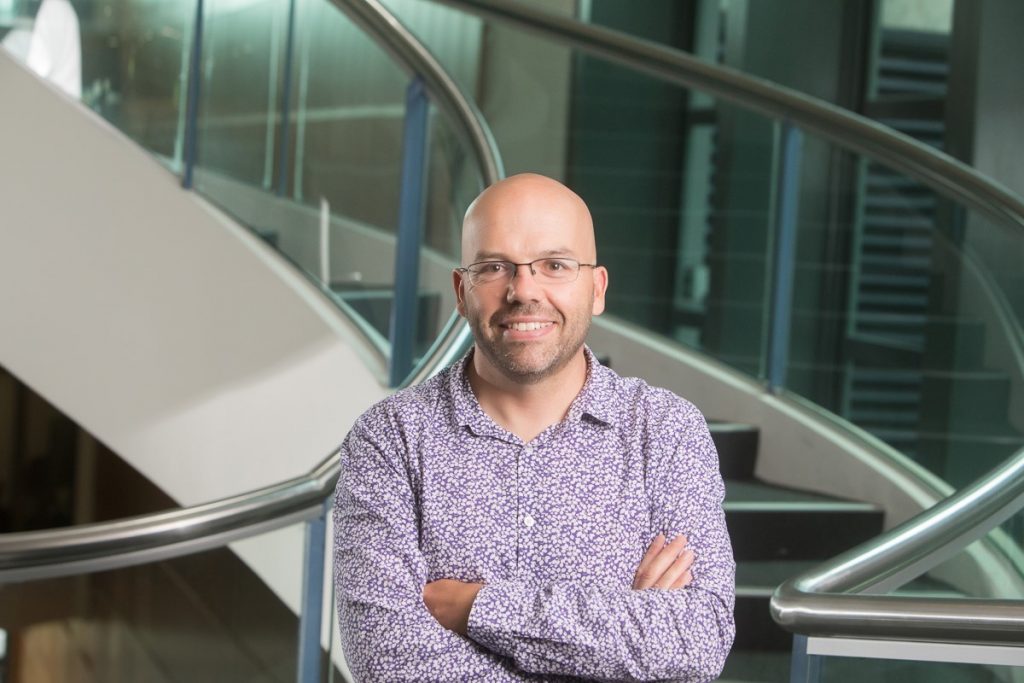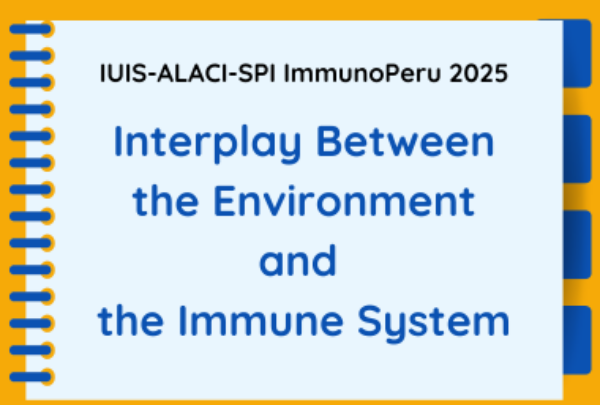This is my first newsletter in the capacity as Chair of the IUIS Expert Committee on Inborn Errors of Immunity (previously Primary Immunodeficiencies). I joined this committee in 2015, at a time when Prof Bobby Gaspar (Great Ormond St Hospital, London, UK) was Chair. Bobby was succeeded by Prof Kate Sullivan (Children’s Hospital of Philadelphia, USA) in 2016, and it was with great excitement (and some trepidation) that I was invited to succeed Kate earlier this year. I have greatly enjoyed being on this committee and really appreciated the excellent leadership of both Kate and Bobby, from whom I have learnt a great deal – I know that I have large shoes to fill.
I thought I would take this opportunity to introduce myself to IUIS. Unlike many previous chairs (and even members) of our committee, I am not a clinician – however, I have always had a great passion for human immunology. Like the careers of many individuals, numerous serendipitous events lead me to study primary immunodeficiencies – as such, I have been working in this field for nearly 20 years now, firstly focusing on a single inborn error of immunity (SH2D1A, which is mutated in X-linked lymphoproliferative disease) but now we study a very broad range of primary immunodeficiencies to understand the requirements for generating effective immune responses in humans but also to elucidate mechanisms of disease in affected individuals. I have been fortunate to collaborate with, and benefit from the generosity and collegiality of, many former and current members of the IUIS Expert Committee on Inborn Errors of Immunity. Thus, being invited to join this committee was very humbling and rewarding, and becoming the Chair represents a great opportunity for me to continue the outstanding work the committee and previous Chairs have done for over the past 3 decades.
The IUIS Expert Committee on Inborn Errors of Immunity committee is tasked with maintaining a list of immunologic disorders. The rate of discovery of genetic variants underlying immune dysregulatory conditions – infection, autoimmunity, allergy, malignancy – continues remarkable. his has been facilitated by the access to and affordability of next generation sequencing (NGS) technologies and platforms that enable unbiased and rapid detection of genetic variants in affected individuals and the ability to establish causation and contribution of these variants to disease pathogenesis. The explosion in discovery of inborn errors responsible for novel immunological diseases of the immune system is illustrated in the graph below. This depicts the annual accumulated number of genes identified that, when mutated, cause disease. In 2011, ~200 gene defects had been identified, and this was almost exclusively through targeted/traditional approaches such as linkage analyses, homozygosity mapping, and sequencing candidate genes. Today, >350 gene defects have been discovered, with the vast majority of these being resolved by NGS approaches, such as whole exome and whole genome sequencing. In the last 18 months alone, >50 gene defects have been discovered – with more and more centers routinely performing NGS, and even incorporating this into the work up of patients with atypical clinical presentations, this number and rate of discovery will only increase in the weeks, months and years ahead.

The reason I am emphasizing this is because one of the major goals of the committee is to judiciously assess the reporting of novel variants and maintain a detailed and current list of primary immune dysregulatory conditions. The most recent update was published in January in the Journal of Clinical Immunology – this is a key resource for the fields of clinical and basic immunology, evidenced by this publication being dowloaded >5000 times. As this list of gene defects is routinely used as a reference to categorise and predict the pathogenicity of variants identified in patients by NGS, it is imperative for us as a committee to remain abreast of reportings of all genetic defects attributed to causing immunological diseases. Due to the rapid rate of publication of novel gene defects, we are thus committed to providing an update to the list of gene defects every 6 months – this update is available on the IUIS website
Upcoming activity for the IUIS Expert Committee and its members on Inborn Errors of Immunity includes:
- a meeting held as part of the 18th Biennial Meeting of the European Society of Immunodeficiencies in October 2018;
- the major biennial meeting in February 2019 where content of the next published update of the genetic and phenotypic classification of Inborn Errors of Immunity will be ratified.
- working with the Clinical immunology committee to support educational activities
- educational initiatives, with several members of the committee attending as teaching faculty at the LASID (Latin American Society of Immunodeficiencies) Summer School, to be held in Medellin, Columbia in August 2018
- attendance at the Jeffrey Modell Foundation Primary Immunodeficiency meeting, to be held in New York in September 2018, providing opportunities
- liaise with IUIS to ensure participation of our committee members, as well as an appropriate symposium session on Inborn errors of immunity, at the IUIS meeting to be held in Beijing in 2019.

Garvan Institute of Medical Research, NSW, Australia








